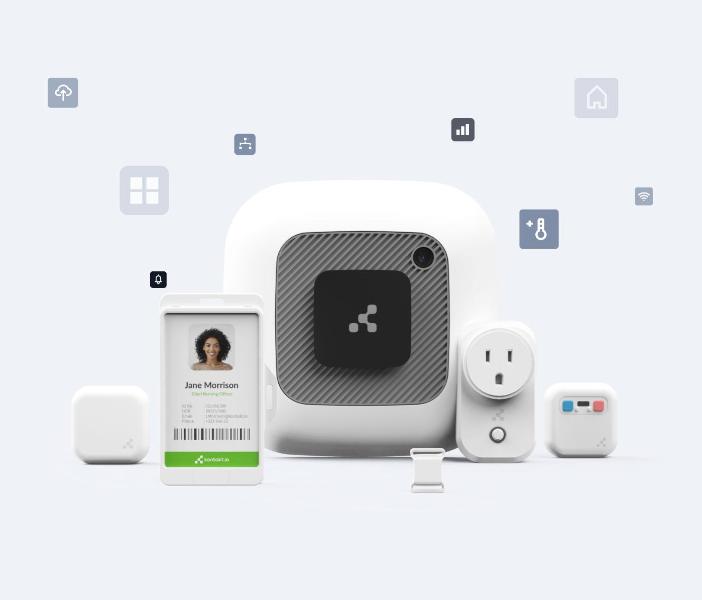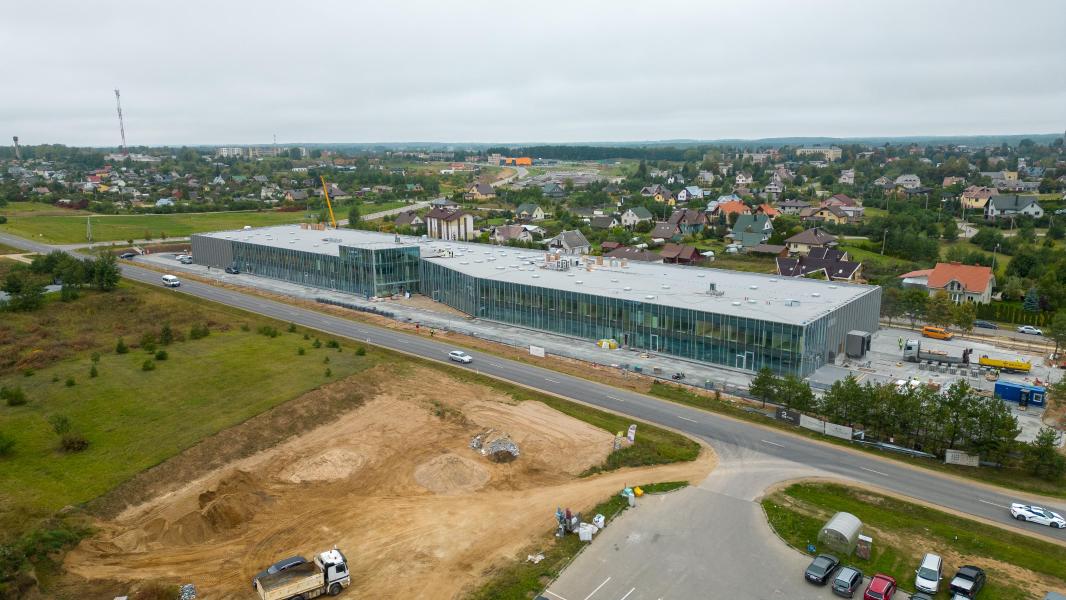Two European companies are transforming the Internet of Things (IoT) sector, producing innovative digital building services and creating jobs in Poland and Lithuania
Internet of Things (IoT) technology holds the key to transforming and optimising the way we live, drive, work, manufacture products, or receive healthcare. It can reduce communication and storage costs, as well as energy consumption and carbon footprints. With over 41 billion IoT devices expected to be in use by 2025, IoT is at the forefront of the world economy’s digital transformation.
Investment in key European IoT innovators will help the continent achieve digital autonomy in information and communication technology. So the European Investment Bank is backing Poland’s Kontakt.io with €12 million financing, signed in February this year, through its European Guarantee Fund, a facility designed to helps European businesses deal with the economic impact of the COVID-19 pandemic.
Founded in Kraków, Poland, Kontakt Micro-Location (the full name of Kontakt.io) uses Bluetooth technology to revolutionise indoor location systems. “For years, other companies were offering expensive and complex monolithic solutions,” says Philipp von Gilsa, Kontakt.io’s chief executive. “We make smart IoT devices, cloud solutions, and powerful software able to transform buildings into sustainable indoor environments.”
Creating interactions between people, objects, and buildings
Kontakt.io uses artificial intelligence, sensors, and cloud technologies, extending into a building’s Wi-Fi to create a new metadata layer for smart buildings. This means a new layer of data about buildings that describes interactions between equipment, human beings, and the spaces they occupy.
“This way we create human-building interfaces that provide people with comfortable, useful, and safe indoor experiences, and make buildings work for people,” says Łukasz Szelejewski, Kontakt.io’s chief technology officer.
With Kontakt.io’s location-aware applications in healthcare, a nurse can identify the closest available and sanitized medical equipment. In office environments, Kontakt.io’s technology helps companies to track in-depth building and floor personnel and assets, and ensure that office space is used efficiently.
Kontakt.io’s innovation has a green dimension, too.
“Our products help optimize a building’s power consumption,” says Szelejewski. “Understanding how the buildings are actually utilized builds the data foundation that helps minimise a building’s heating, ventilation, and air-conditioning consumption, reducing energy costs by as much as 35%.”

“We use AI and Cloud technologies, extending into buildings’ WiFi, Bluetooth® LE and sensors, to expose a new layer of metadata about buildings,” says Philipp von Gilsa
What is the Internet of Things (IoT)?
The Internet of Things (IoT) refers to devices such as cell phones, vehicles, electronic appliances, and smart sensors connected to a wireless network. These devices contain sensors that collect data, and software that uploads the data to the cloud or directly exchanges data with other connected devices.
What is Bluetooth low-energy (BLE)?
Bluetooth Low Energy (BLE) is a wireless radio technology that requires relatively low power consumption to share data between devices.
What is the difference between a Bluetooth beacon and a Bluetooth low-energy tag?
A Bluetooth beacon and a Bluetooth low-energy tag are the same. The name depends mostly on the use. Beacons and tags can both trigger real-world actions or identify a physical location and conditions through the relay of information to nearby smart devices.
What is a Bluetooth gateway?
A Bluetooth gateway is a real-time scanner that serves as a collection point for data from beacons within a set radius. By staying in constant communication with surrounding beacons (or tags), gateways create a cloud of data that can be used to track any number of conditions, from temperature to location.
Source: Kontakt.io
Investing in Europe’s digital autonomy
The EU bank’s European Guarantee Fund aims to support companies hit by the COVID-19 economic downturn. Many of these companies are tech firms that don’t have capital to fall back on, even though they need to scale up their business. That’s particularly important in technology sectors where European companies might otherwise have to look to the US or China for alternative financing.
“The Fund enables us to offer long-term financing solutions to innovative companies in strategically important sectors for Europe’s future,” says Iwona Biernat, an equity investment officer at the European Investment Bank.
With the European Investment Bank’s support, Kontakt.io can continue to innovate and grow. “Now, we are also stepping into artificial intelligence and machine learning,” says von Gilsa, the chief executive. “We are also trying to improve our technology, making it even more intelligent and easy to use.”
- Read more about why digital autonomy matters
IoT products made in Lithuania
Another IoT company backed by the European Investment Bank, Teltonika IoT Group, is producing innovative wireless networks and communication technologies, such as vehicle trackers, GPS and modems operating in 2G, 3G, 4G, 5G and Bluetooth networks.
“We started as a very small company in Lithuania in 1998 with a lot of hardship ahead,” says Arvydas Paukštys, the founder and president of Teltonika IoT Group. “Now, we sell our unique, made-in-Lithuania IoT products in more than 160 countries.”
The European Investment Bank signed a €50 million deal to support Teltonika in May, backed by a guarantee from the EU budget under the European Fund for Strategic Investments

Teltonika intends to establish a 10 800 m2 building with offices, laboratories, and testing and production lines for the development and assembly of telemedicine and network devices in Molėtai
“We will use the funding to complete the construction of the Teltonika Technology Center in Molėtai that alone will create 500 jobs,” says Paukštys. “We also aim to expand the production capacity of Teltonika EMS [the company’s electronic manufacturing, research, and development arm] operating in Vilnius and speed up the implementation of our projects worldwide.”
More funding means more green innovation and jobs. Teltonika started the mass production of smart and reliable electric vehicle chargers in September and aims to create a semiconductor industry in Lithuania in next 5-10 years. This will create additional highly skilled jobs and reduce CO2 emissions.
